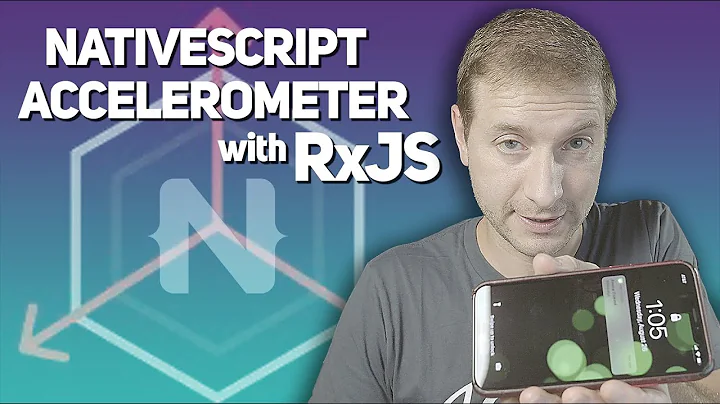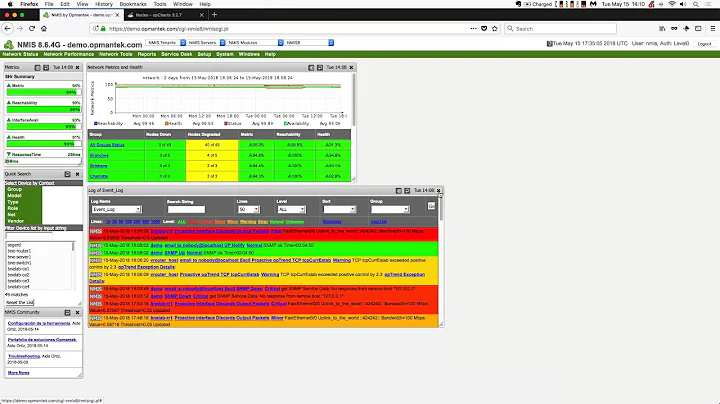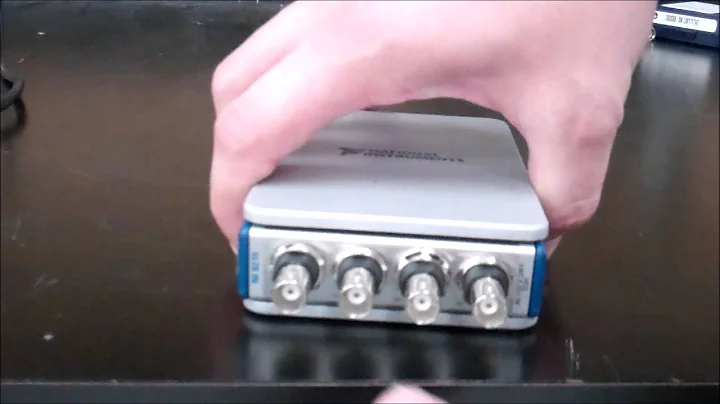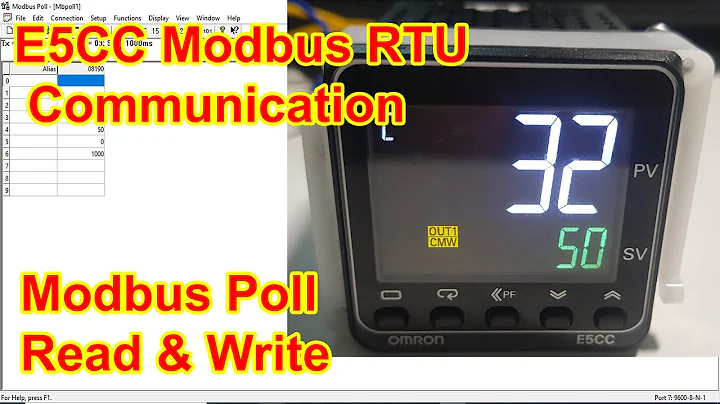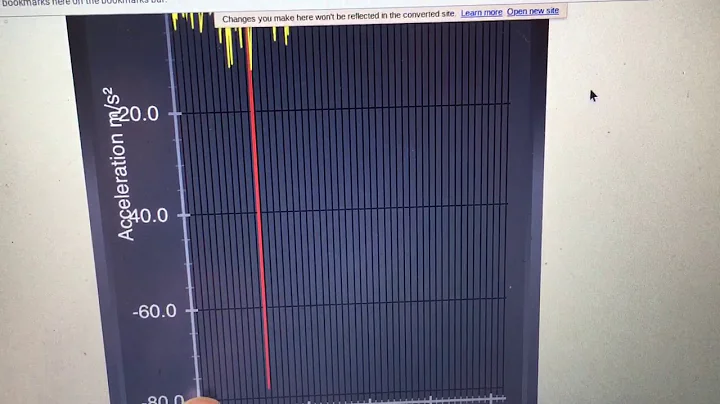access (faster polling) accelerometer via NativeActivity NDK
Solution 1
I also tried a few things with the sample rate of sensors. I use a Galaxy Nexus. If I use only the Acc-Sensor the frequency is very low (about 40Hz), but if I use the Acc-Sensor plus the magnetic- and the gyro-sensor the sample rate for each sensor is about 100Hz. I have no explanation why this happens. Another observation is that the values passed to ASensorEventQueue_setEventRate have no effect. The sample-rate is always the same. The behaviour is exactly the same for SDK-Code.
Here is the code I used for benchmarking:
#include <string.h>
#include <jni.h>
#include <android/sensor.h>
#include <android/looper.h>
#include <android/log.h>
#include <time.h>
#define LOGI(...) ((void)__android_log_print(ANDROID_LOG_INFO, "TestJNIActivity", __VA_ARGS__))
#define LOOPER_ID 1
#define SAMP_PER_SEC 100
ASensorEventQueue* sensorEventQueue;
int accCounter = 0;
int64_t lastAccTime = 0;
int gyroCounter = 0;
int64_t lastGyroTime = 0;
int magCounter = 0;
int64_t lastMagTime = 0;
/* This is a trivial JNI example where we use a native method
* to return a new VM String. See the corresponding Java source
* file located at:
*
* apps/samples/hello-jni/project/src/com/example/HelloJni/HelloJni.java
*/
static int get_sensor_events(int fd, int events, void* data);
struct tm* start;
struct tm* finish;
jstring
Java_de_tum_ndktest_TestJNIActivity_stringFromJNI( JNIEnv* env, jobject thiz )
{
LOGI("stringFromJNI");
return (*env)->NewStringUTF(env,"Hello from JNI !");
}
void
Java_de_tum_ndktest_TestJNIActivity_sensorValue( JNIEnv* env, jobject thiz ) {
ASensorEvent event;
int events, ident;
ASensorManager* sensorManager;
const ASensor* accSensor;
const ASensor* gyroSensor;
const ASensor* magSensor;
void* sensor_data = malloc(1000);
LOGI("sensorValue() - ALooper_forThread()");
ALooper* looper = ALooper_forThread();
if(looper == NULL)
{
looper = ALooper_prepare(ALOOPER_PREPARE_ALLOW_NON_CALLBACKS);
}
sensorManager = ASensorManager_getInstance();
accSensor = ASensorManager_getDefaultSensor(sensorManager, ASENSOR_TYPE_ACCELEROMETER);
gyroSensor = ASensorManager_getDefaultSensor(sensorManager, ASENSOR_TYPE_GYROSCOPE);
magSensor = ASensorManager_getDefaultSensor(sensorManager, ASENSOR_TYPE_MAGNETIC_FIELD);
sensorEventQueue = ASensorManager_createEventQueue(sensorManager, looper, 3, get_sensor_events, sensor_data);
ASensorEventQueue_enableSensor(sensorEventQueue, accSensor);
ASensorEventQueue_enableSensor(sensorEventQueue, gyroSensor);
ASensorEventQueue_enableSensor(sensorEventQueue, magSensor);
//Sampling rate: 100Hz
int a = ASensor_getMinDelay(accSensor);
int b = ASensor_getMinDelay(gyroSensor);
int c = ASensor_getMinDelay(magSensor);
LOGI("min-delay: %d, %d, %d",a,b,c);
ASensorEventQueue_setEventRate(sensorEventQueue, accSensor, 100000);
ASensorEventQueue_setEventRate(sensorEventQueue, gyroSensor, 100000);
ASensorEventQueue_setEventRate(sensorEventQueue, magSensor, 100000);
LOGI("sensorValue() - START");
}
static int get_sensor_events(int fd, int events, void* data) {
ASensorEvent event;
//ASensorEventQueue* sensorEventQueue;
while (ASensorEventQueue_getEvents(sensorEventQueue, &event, 1) > 0) {
if(event.type == ASENSOR_TYPE_ACCELEROMETER) {
//LOGI("accl(x,y,z,t): %f %f %f %lld", event.acceleration.x, event.acceleration.y, event.acceleration.z, event.timestamp);
if(accCounter == 0 || accCounter == 1000)
{
LOGI("Acc-Time: %lld (%f)", event.timestamp,((double)(event.timestamp-lastAccTime))/1000000000.0);
lastAccTime = event.timestamp;
accCounter = 0;
}
accCounter++;
}
else if(event.type == ASENSOR_TYPE_GYROSCOPE) {
//LOGI("accl(x,y,z,t): %f %f %f %lld", event.acceleration.x, event.acceleration.y, event.acceleration.z, event.timestamp);
if(gyroCounter == 0 || gyroCounter == 1000)
{
LOGI("Gyro-Time: %lld (%f)", event.timestamp,((double)(event.timestamp-lastGyroTime))/1000000000.0);
lastGyroTime = event.timestamp;
gyroCounter = 0;
}
gyroCounter++;
}
else if(event.type == ASENSOR_TYPE_MAGNETIC_FIELD) {
//LOGI("accl(x,y,z,t): %f %f %f %lld", event.acceleration.x, event.acceleration.y, event.acceleration.z, event.timestamp);
if(magCounter == 0 || magCounter == 1000)
{
LOGI("Mag-Time: %lld (%f)", event.timestamp,((double)(event.timestamp-lastMagTime))/1000000000.0);
lastMagTime = event.timestamp;
magCounter = 0;
}
magCounter++;
}
}
//should return 1 to continue receiving callbacks, or 0 to unregister
return 1;
}
Solution 2
Question is a bit old but maybe these two articles will help out a bit for anyone else that stumbles on this question and wonders why bother, or how to optimize the example in the NDK a bit.
These two short articles layout the issues and potential solutions (but no complete source solution)
Java interfaced sensor performance
Solution 3
This is an old question but given the lack of documentation and articles out there, I thought I'd share my experience. I did all my tests on a Nexus 5X. Your device might be different.
The original code looks right. What isn't obvious from the documentation is that you can only set the event rate after enabling the sensor, and that...
If you re-enable the sensor (say, after onPause() and onResume()), you need to set the event rate again. If you had a "double enable" like I did in my code (enable()/setEventRate() in init(), but only enable() in onResume()), you will get the default polling rate.
Related videos on Youtube
Azkario Rizky
Updated on June 04, 2022Comments
-
Azkario Rizky almost 2 years
I've searched for a tutorial/an answer on polling accelerometer faster with NDK but didnt find solver yet. just found an androiddevelopers documentation here.
what i need is polling acceleration about 100 samples per second (100Hz), by default my device (Samsung Galaxy SL i9003 with gingerbread 2.3.5) with default SENSOR_DELAY_FASTEST can only get about 60 samples persecond (60Hz). Therefore i tried to access sensor via NativeActivity with NDK by generating .c files that i try to make based on sensor.h and looper.h:
#include <jni.h> #include <string.h> #include <android/sensor.h> #include <android/log.h> #include <android/looper.h> #define TAG "accelerondk" #define LOGI(...) __android_log_print(ANDROID_LOG_INFO, TAG, __VA_ARGS__) #define LOGD(...) __android_log_print(ANDROID_LOG_DEBUG, TAG, __VA_ARGS__) #define LOOPER_ID 1 #define SAMP_PER_SEC 100 //i've changed to 120, even 10, but nothing happen void Java_azka_web_ndk_AcceleroNDKActivity_startMonitoring(JNIEnv* env, jclass clazz) { ASensorManager* sensorManager = ASensorManager_getInstance(); ALooper* looper = ALooper_forThread(); if(looper == NULL) looper = ALooper_prepare(ALOOPER_PREPARE_ALLOW_NON_CALLBACKS); ASensorRef accelerometerSensor = ASensorManager_getDefaultSensor(sensorManager,ASENSOR_TYPE_ACCELEROMETER); LOGI("accelerometerSensor: %s, vendor: %s", ASensor_getName(accelerometerSensor), ASensor_getVendor(accelerometerSensor)); ASensorEventQueue* queue = ASensorManager_createEventQueue(sensorManager, looper, LOOPER_ID, NULL, NULL); ASensorEventQueue_enableSensor(queue, accelerometerSensor); ASensorEventQueue_setEventRate(queue, accelerometerSensor, (1000L/SAMP_PER_SEC)*1000); int ident;//identifier int events; while (1) { while ((ident=ALooper_pollAll(-1, NULL, &events, NULL) >= 0)) { // If a sensor has data, process it now. if (ident == LOOPER_ID) { ASensorEvent event; while (ASensorEventQueue_getEvents(queue, &event, 1) > 0) { LOGI("aaaaaaa accelerometer X = %f y = %f z=%f ", event.acceleration.x, event.acceleration.y, event.acceleration.z); } } } } }so far, i've been able to access accelerometer with NativeActivity, but there is no change with number sample had taken. even when i change ASensorEventQueue_setEventRate big enough or small enough the acceleration recorded still about 60 samples per second (1 samples per 15 milisec)
is there any mistakes in my code? or something that i forget with?
thanks in advance
-
 Richard almost 9 yearsDid you need to create an Activity from which to run this? If so, could you please post that code?
Richard almost 9 yearsDid you need to create an Activity from which to run this? If so, could you please post that code? -
steckl almost 9 yearsSorry, it has been three years since I did this. As far as I remember I used a java-GUI from which I called the JNI-functions. Unfortunately I have no code, but I think it was just a funcion-call. The most complicated part was to setup NDK on my computer (Eclipse).
-
 Richard almost 9 yearsI figured it out, thanks. I'll probably update your answer with a few pointers on it.
Richard almost 9 yearsI figured it out, thanks. I'll probably update your answer with a few pointers on it. -
 ransh over 7 yearsit works, but we observed that accelerometers keeps wakelock! Does it make sense ? I thought that only "significant movement sensor" keep wakelock.
ransh over 7 yearsit works, but we observed that accelerometers keeps wakelock! Does it make sense ? I thought that only "significant movement sensor" keep wakelock.
